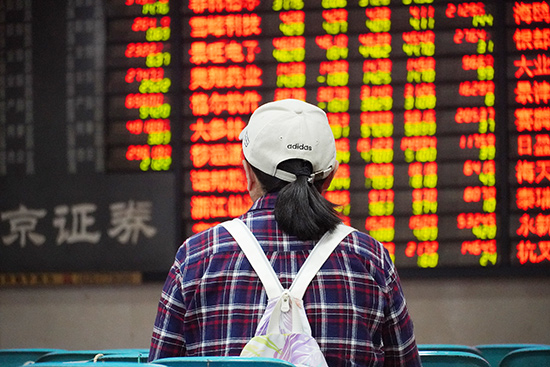美国股市不再吃香,超60%的中国企业更愿意在国内上市

|
对于想要上市的中国公司而言,美国可能正在失去吸引力。至少,这是北京知名学府清华大学和审计机构麦楷博平财务咨询有限公司(Marcum Bernstein & Pinchuk LLP)最近对私营企业的一项调查得出的结论。 麦楷博平的联席管理合伙人德鲁·伯恩斯坦说:“大多高管在展望未来时都在远离美国。”这项研究于三季度初完成,调查了1,200多名高管。报告显示,66%的中国商界领袖认为国内市场是最具吸引力的上市地点,而只有18.7%的受访者将美国视为首选。 不过仍然有一些中国公司更青睐美国:上个月,至少有9家中国公司申请在美国上市。总体而言,在纳斯达克或纽交所上市的中国公司数量从去年的26家降至今年的18家。这种趋势可能会持续下去,因为华盛顿近期的言论给寻求在美国上市的中国公司制造了一个更加敌对的环境。 上周,美中经济安全审查委员会建议国会限制中国公司进入美国市场;特朗普总统此前曾威胁要将中国股票摘牌,尽管他没有这样做的权力;而白宫也考虑过阻止政府养老基金投资中国公司。 与此同时,中国多年来也一直在努力提升国内股市的吸引力,尤其是致力于将上海打造成一个金融胜地。今年7月,上海推出了科创板,这是一个类似于纳斯达克的交易所,允许科技公司在盈利前进行上市。 然而,上海美国商会(American Chamber of Commerce)今年早些时候的一份报告指出,中央政府未能实现到2020年将上海打造成国际金融中心的雄心,主要由于资本管制和“随意的政府干预”。随着交易量和股价暴跌,这个新的科创板市场也在“崩溃”。 中国迫切希望将上海发展成为金融中心,部分原因是希望有一个可以替代香港的在岸金融中心。香港的司法和金融主管机构与中国内地几乎完全分离,是全球企业进行IPO的主要选择之一。 去年,共有125家公司在香港上市,共筹集了365亿美元资金,港交所因此在IPO市场排行榜上名列前茅。 当年早些时候,管理港交所的香港交易及结算有限公司(Hong Kong Exchanges and Clearing)修改了上市规则,允许双层股票上市,这种做法有助于创始人在公司上市后保持对公司的控制权。此前,由于香港拒绝双层上市,电商巨头阿里巴巴250亿美元的IPO转而选择纽约。 然而,自从规则改变后,内地数家领先的科技公司——它们更偏爱双重选择——在香港进行了颇为轰动的IPO,其中包括智能手机制造商小米和消费者服务平台美团。这两家公司占去年香港IPO融资总额的89亿美元。 尽管连续5个月的抗议活动重创了香港经济,但香港股市的繁荣仍在持续。今年,阿里巴巴在港交所进行130亿美元规模的第二上市,这将帮助香港再次登上榜首。因此,尽管66%的中国公司表示将在国内上市,但可能香港对他们来说已经足够近了。(财富中文网) 译者:Agatha |
The U.S. may be losing its appeal as a destination for Chinese companies seeking to go public. At least, that’s according to a recent survey of private enterprises conducted by Beijing’s prestigious Tsinghua university and auditor Marcum Bernstein & Pinchuk LLP (MarcumBP). “Most executives looking forward are veering away from the United States,” said Drew Bernstein, co-managing partner of MarcumBP. According to the report, which was conducted at the start of the third quarter and surveyed over 1,200 executives, 66% of Chinese business leaders see their home market as the most attractive destination for listing, while only 18.7% of respondents put the U.S. as first choice. While some Chinese firms continue to prefer the U.S.—last month, at least nine Chinese companies filed for an IPO on U.S. exchanges—overall, the number of Chinese companies listing on Nasdaq or the NYSE has fallen to 18 this year, down from 26 last year. It’s a trend that could continue, as recent rhetoric from Washington has created a more hostile environment for Chinese firms looking to go public in the U.S. Last week the U.S.-China Economic and Security Review Commission advised congress to restrict access to U.S. markets for Chinese companies; President Trump has previously threatened to delist Chinese stocks, despite lacking the authority to do so; and the White house has considered preventing government pension funds from investing in Chinese companies. Meanwhile, China has spent years trying to boost the appeal of its domestic stock markets, promoting Shanghai in particular as a destination for finance. In July, Shanghai launched the STAR Market—a Nasdaq-style bourse in Shanghai that permits pre-profit IPOs for science and technology companies. However, a report earlier this year from the American Chamber of Commerce (AmCham) in Shanghai argued that the central government had failed in its ambition to position the city as a destination for international finance by 2020, primarily due to capital controls and “arbitrary government intervention.” The new STAR Market is “crashing,” too, as trading volume and share prices on the bourse slump. China’s eagerness to develop Shanghai as a financial center is partly motivated by a desire to have an onshore alternative to Hong Kong—which has a judiciary and monetary authority largely separate from that in mainland China and is the leading destination for IPOs globally. Last year, 125 companies raised $36.5 billion collectively through listings in Hong Kong, propelling the Hong Kong Stock Exchange to pole position in the rankings of IPO destinations. Earlier that year, Hong Kong Exchanges and Clearing (HKEX), the group that manages the city’s bourse, revamped its listing rules to permit the listing of dual-class shares, which help founders retain control of a company after it goes public. Previously, Hong Kong’s refusal of dual-class listings cost the exchange Alibaba Group’s lucrative $25 billion IPO, as the e-commerce giant opted to go to New York instead. Since the rule change, however, leading mainland tech firms—which favor dual class options—have had blockbuster IPOs in Hong Kong, including smartphone maker Xiaomi and consumer services platform Meituan. The two companies accounted for $8.9 billion of the total raised through IPOs in Hong Kong last year. Despite five months of protests that have hammered Hong Kong’s economy, the local stock market continues to thrive. This year, Alibaba is preparing for a $13 billion secondary listing on the exchange which should help Hong Kong top the charts once again. So while 66% of Chinese firms say they would list at home, perhaps Hong Kong will be close enough. |













